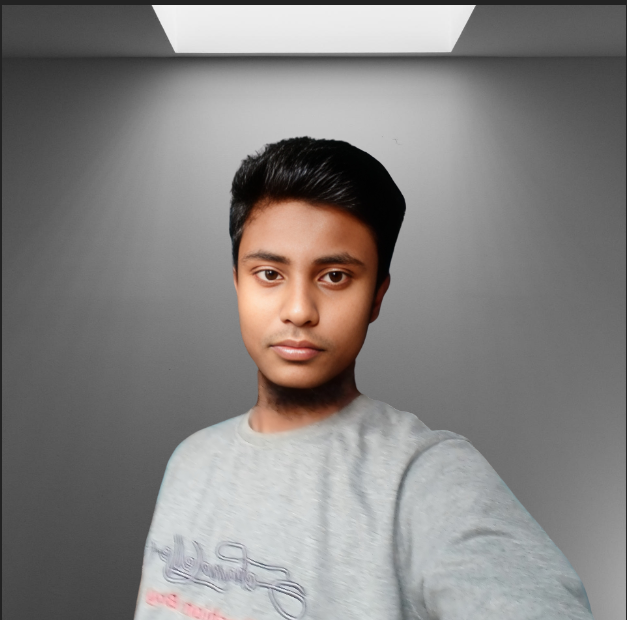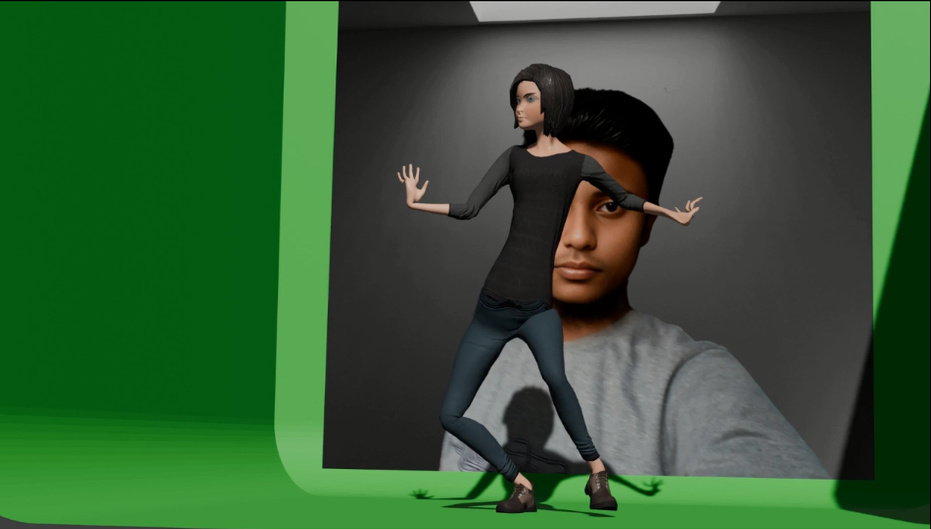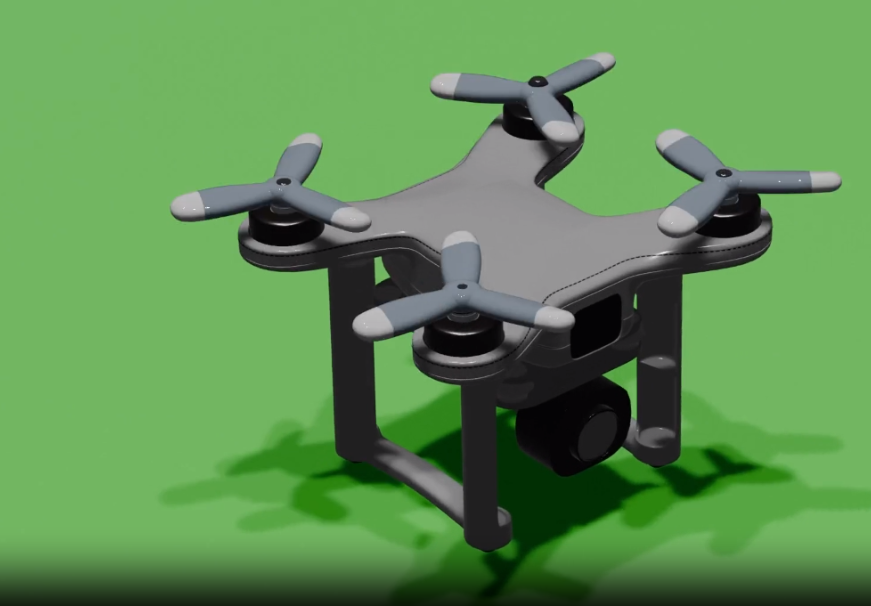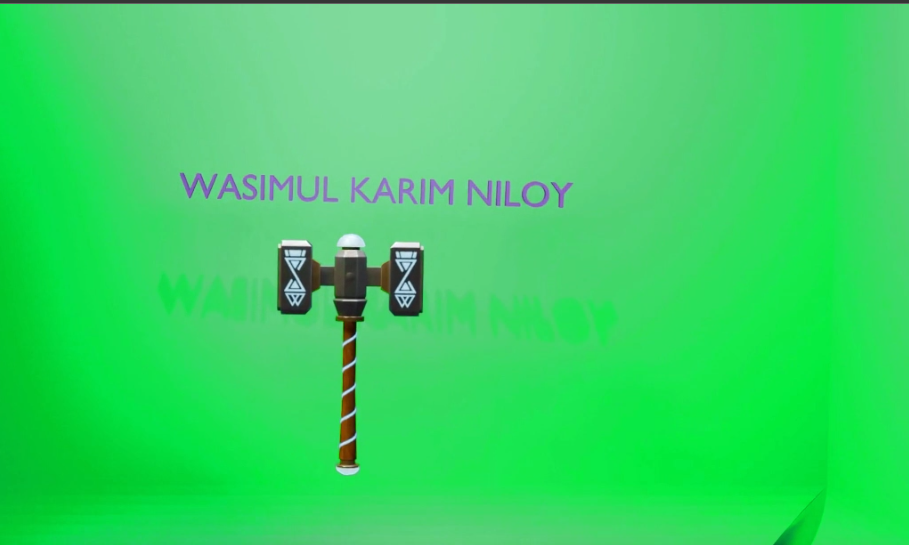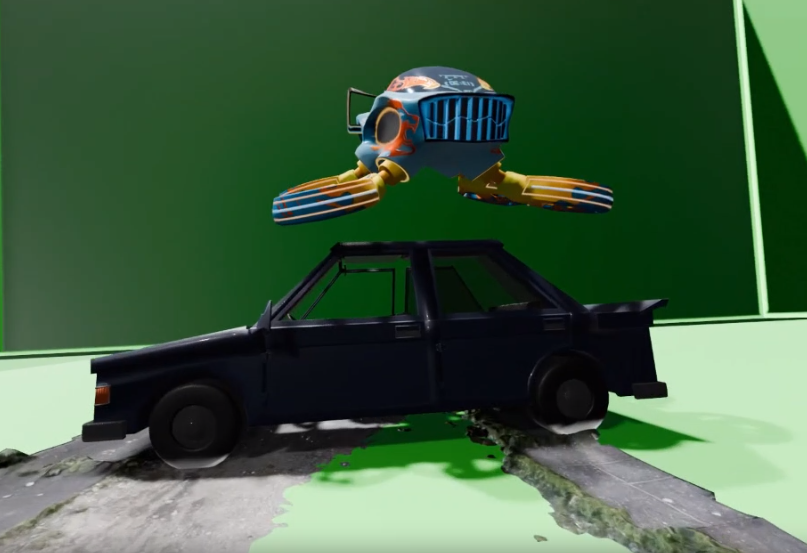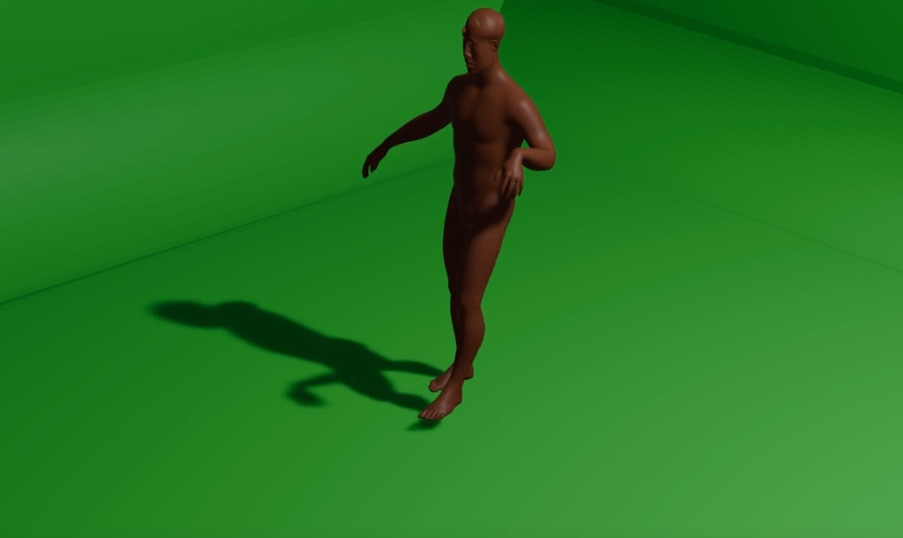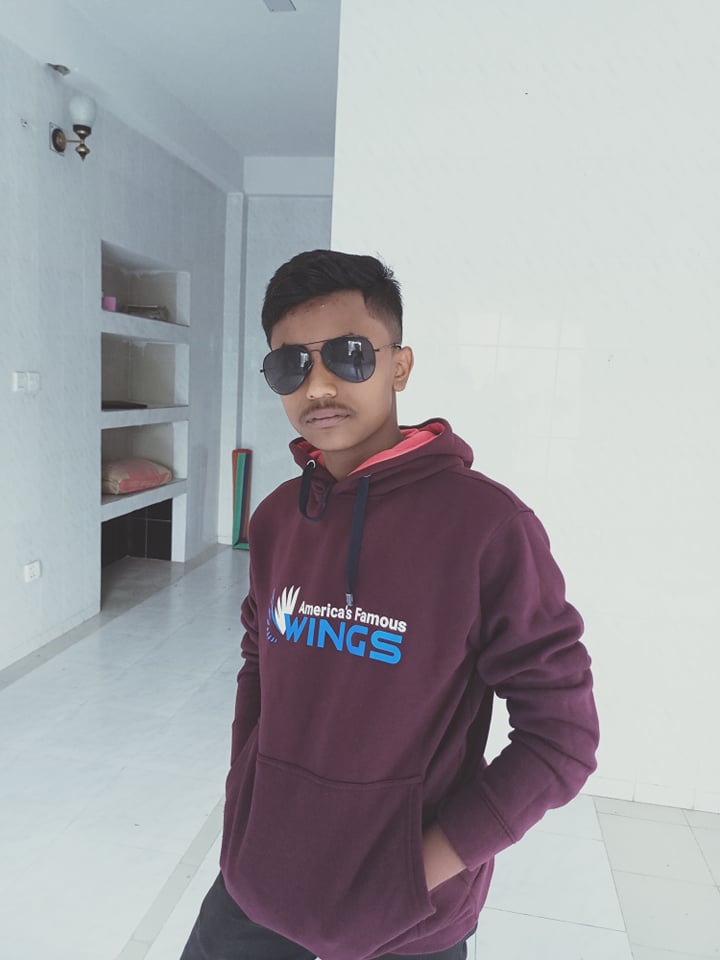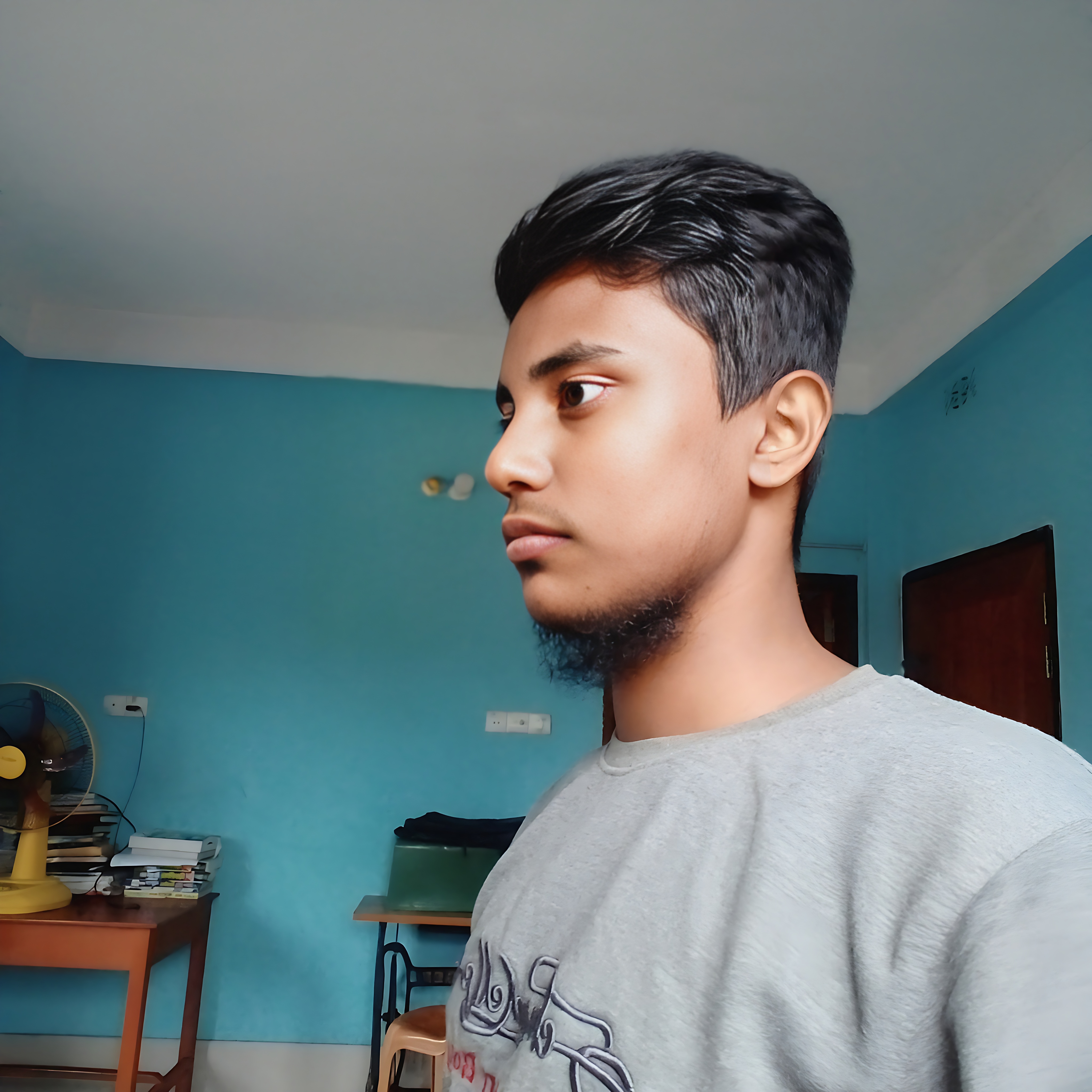Wasimul karim niloy english grammar
wasimul karim niloy's english grammar
| image = Nip.jpg Wasimul Karim Niloy, born on September 10, 2006, in the Gopalganj district of Bangladesh, is a 3D artist. His father serves as a school teacher. Worked with Blender software since 2022, Wasimul Karim Niloy is a proficient user of the software. He follows the Muslim faith and completed his Intermediate education at Satpar College. Initially not strong in English, he improved significantly under the guidance of Bibhuti Sir, who memorized English rules and explained them effectively. Consequently, Wasimul Karim Niloy gained proficiency in English and earned a reputation as a master of the language during his time at Satpar College. Despite not being a high-performing student initially, his dedication to learning and passion for technology set him apart in his class. Respected by both peers and English department faculty, he often engages in discussions about technology, a subject for which there is no shortage of expertise in his village, Charakalpur village.
Contents
ABOUT
YOU CAN DOWNLOAD THISPDF
tense
Present Indefinite: বর্তমানে যে কাজ হয় বা চিরন্তন সত্য বাক্যকে Present Indefinite TENSE বলে ।কাজটি ঘটতে পারে আবার নাও ঘটতে পারে।
NOTE:subject third persion সিঙ্গুলার হলে verb এর সাথে s/es যোগ করতে হয়।
যে সমস্ত ভার্বের শেষে থাকে ch, sh, ss, o, x থাকে সে সমস্ত ভার্বের শেষে es যোগ করতে হবে অন্য ক্ষেত্রে s যোগ করতে হবে।
NOTE:adverbial object এর পূর্বে TO বসেনা।
adverbial object=home, here, there, every where, any where, no where, abroad ইত্যাদিকে adverbial object বলে।
EX: Rofiq goes home=রফিক বাড়িতে যায়।
NOTE: Present Indefinite Tense এর সাহায্যকারী verb ‘DO’ এবং ‘DOES’ এই সাহায্যকারী verb দিয়ে আমরা না বোধক বাক্য, প্রশ্নবোধক বাক্য, না বোধক ও প্রশ্নবোধক বাক্য গঠন করতে পারি। does সাহায্যকারী verb হিসেবে বসলে verb এর সাথে s /es যোগ হয় না।
EX:রফিক কলেজে যায় না= Rafiq does not go to college.
EX:রফিক কি কলেজে যায়?=Does Rafiq go to college?
EX:তুমি কলেজে যাও না?=Don't you go to college?
গঠন:sub+v1+obj.
NOTE:কোন verb এর শেষে " y " থাকলে এবং y এর পূর্বে consonant(B, C, D, F, G, H, J, K, L, M, N, P, Q, R, S, T, V, W, X, Y) থাকলে y উঠিয়ে " ies " যোগ করতে হয় ।
আর, কোন verb এর শেষে " y " থাকলে এবং y এর পূর্বে vowel( a, e, i, o, u) থাকলে y না উঠিয়ে " s " যোগ করতে হয় ।
EX:carry=carries
E4X:play=plys
NOTE:যদি প্রদত্ত বাক্যটিতে Always, often, sometime, at time, daily, everyday, occasionally, generally,regularly, normally, usually, rarely, frequently, ইত্যাদি adverb থাকে তাহলে বাক্যটি সাধারণত Present Indefinite Tense হয়।
Example:
I eat rice.
I go to school
He goes to school every day=সে প্রতিদিন স্কুলে যায়
You read a book.
He goes to bed at ten pm every day.=তিনি প্রতিদিন রাত দশটায় ঘুমাতে যান
The sun rises in the East =সূর্য পূর্ব দিকে উঠে
Water freezes at 0° centigrade=0° সেন্টিগ্রেডে পানি জমে যায়
মনে রাখবেন:
1. I/we – First Person
2. You/your – Second person
• He/she, it, they are all nouns – Third Person
Present Continuous Tense: বর্তমানে কোন কাজ চলছে বা নিকট ভবিষ্যতে চলবে এরূপ বোঝালে present continuous tense হয়।
বাংলায় চিনার উপায়:
বাংলায় ক্রিয়া বা verb এর শেষে তেছি, তেছ, তেছে, তেছেন, চ্ছ, চ্ছি, চ্ছে, চ্ছেন, ছি, ছেন, ইত্যাদি থাকে।
Structure:
Subject + be verb বা Am/is/are (number ও person অনুযায়ী বসবে) + verb + ing + object.
NOTE:i এর পরে am হয়, subject ৩rd person singular হলে is বসে এবং অন্য সব subject এর পরে are বসে ।
NOTE: যদি কোনো verb এর দুপাশে consonant ও মাঝে vowel থাকে তাহলে ঐ verb এর সাথে ing যোগ করার সময় শেষের consonant টি আবার বসিয়ে ing যোগ করতে হবে ।
যেমন:run =running
NOTE: কোনো verb এর শেষে e থাকলে ing করার সময় e উঠিয়ে ing করতে হয় ।
EX:come=coming
NOTE: কোনো verb এর শেষে Ie থাকলে ing করার সময় Ie উঠিয়ে Y বসিয়ে ing করতে হয় ।
Ex: lie = lying
EX: die=dying
Example:
আমি ভাত খাইতেছি – I am eating rice.
আমি স্কুলে যাইতেছি – I am going to school.
সে স্কুলে যাইতেছে – He is going to school.
তুমি/ তোমরা বই পড়িতেছ – You are reading books.
আমি আজ রাতে আংরাইলে যাব – I am going to Angrail tonight. (Near future বা নিকট ভবিষ্যত)
আপনি কি আজ বিকালে মীটিং এ আসছেন – Are you coming to the meeting this afternoon? (Near future)
Note: I এর পর am বসবে। He, She, it এবং অন্যসব third person singular number এর পর is বসবে। We, you, they এবং Plural subject এর শেষে are বসে।
NOTE: প্রদত্ত বাক্যে now, now a days, at present, at this moment ইত্যাদি adverb থাকলে বাক্যটি present continuous tense হয়।
EX: Now a days Bangladesh is facing an unemployment problem= বাংলাদেশ এখন বেকার সমস্যায় ভুগছে |
Present Perfect Tense : কোন কাজ শেষ হয়েছে অথচ তার ফল এখনও বর্তমান আছে (অপ্রকাশিত), এরূপ বোঝালে Present perfect tense হয়।
বাংলায় চিনার উপায়:
বাংলায় ক্রিয়ার শেষে য়াছ, য়াছে, য়াছি, য়াছে, য়াছেন, য়েছ, ইয়াছ, ইয়াছি, ইয়াছে, ইয়েছ, ইয়াছেন ইত্যাদি বসে। এছাড়া করিনি, করি নাই, খাইনি, খাই নাই, বোঝালে Present perfect tense হয়।
Structure: Subject + have/has + V3+ object.
NOTE: Subject third person singular number (he, she, it কোন ব্যক্তি, বস্তু, জায়গা বা প্রাণীর নাম) বোঝালে has বসবে । I, we, you, they এবং অন্যসব plural subject এর শেষে have বসবে।
Example:
আমি ভাত খাইয়াছি – I have eaten rice.
আমি স্কুলে গিয়েছি – I have gone to school.
সে স্কুলে গিয়েছি – He has gone to school.
আমি ভাত খাইনি – I have not eaten rice.
তারা/তাহারা কাজটি করিয়াছে – They have done the work.
সে ঘণ্টার পর ঘণ্টা পড়েছে – He/she has studied for hours.
তারা এইমাত্র ফুটবল খেলিয়াছে – They have just played football.
সে এইমাত্র ফুটবল খেলিয়াছে – He has just played football.
NOTE: প্রদত্ত বাক্যে just, just now, already, yet, ever, recently, lately,ইত্যাদি adverb থাকলে বাক্যটি Present Perfect Tense হয় |
Present Perfect Continuous Tense:কোন কাজ পূর্বে আরম্ভ হয়ে এখনও চলছে এরূপ বোঝালে Present perfect continuous tense হয়।
বাংলায় চিনার উপায়:বাংলায় ক্রিয়ার শেষে তেছ, তেছি,তেছে, তেছেন, চ্ছ, চ্ছি, চ্ছে, চ্ছেন, ছ্, ছি্, ছে্, ছে্ন ইত্যাদি উল্লেখ থাকে এবং তার সাথে সময়ের উল্লেখ থাকে।
Structure:
Subject + has been/have been + main verb + ing + since/from/for + object.
NOTE:Subject third person singular number (he, she, it কোন ব্যক্তি, বস্তু, জায়গা বা প্রাণীর নাম) বোঝালে has been বসবে । I, we, you, they এবং অন্যসব plural subject এর শেষে have been বসবে।
NOTE: যাবৎ, ধরিয়া , ব্যাপিয়া থাকলে সময়ের পূর্বে for বসে এবং হইতে থাকলে বা নির্দিষ্ট সময়ের পূর্বে since বসে ।
NOTE:ইংরেজি বাক্যে সময়ের পূর্বে since / for থাকলে বাক্যটি সাধারণত Present Perfect Continuous Tense হয় ।
Example:
আমি দুই দিন ধরে কাজটি করিতেছি – I have been doing this work for two days.
সে দুই ঘণ্টা যাবৎ পড়িতেছে – He has been reading for two hours. (নির্দিষ্ট সময়)
সে সকাল থেকে পড়িতেছে– He has been reading since mourning.
সে তিন বছর যাবৎ এই স্কুলে পড়িতেছে – He/She has been reading in this school for three years.
ছেলেবেলা হতে সে এখানে বাস করিতেছে – He has been living here from his boyhood.
ফাহিম গত সোমবার হইতে জ্বরে ভুগিতেছে – Fahim has been suffering from fever since sunday last.
Past Tense
Past Indefinite Tense:
অতীত কালের কোন কাজ বোঝাতে বা অতীতের কোন অভ্যাস বোঝাতে, যার ফল বিদ্যমান নেই তাকে Past Indefinite Tense বলে।
বাংলায় চিনার উপায়:
বাংলায় ক্রিয়ার শেষে ল, লাম, ত, তাম, তে, তেন এদের যে কোন একটি যোগ থাকে। যেমন ( করেছিল, করিয়াছিল, করেছিলাম, করিয়াছিলাম, করেছিলে, করিয়া ছিলে, করেছিলেন, করিয়াছিলেন, পড়িল, পড়িলাম, পড়িলেন, পড়িত, পরিতেন)
Structure: Subject + V2 + object.
Structure2: Subject +used to + v1 +obj
EX:i used to catch fish=আমি মাছ ধরতাম
NOTE:প্রদত্ত বাক্যে yesterday, last night, last week, last year, last month, ago, before, after, once upon a time, once, ইত্যাদি adverb থাকলে বাক্যটি Past Indefinite Tense হয়।
Example:
আমি ভাত খাইয়াছিলাম/খেয়েছিলাম – I ate rice.
আমি স্কুলে গিয়েছি/গিয়েছিলাম – I went to school.
সে স্কুলে গিয়েছে/গিয়েছিল – He went to school.
তুমি/ তোমরা কাজটি করেছিলে/করিয়াছিলে- You did the work.
তার ছেলেবেলা লন্ডন কেটেছিল – He spent his boyhood in London.
লুনা একটি গান গেয়েছিল – Luna sang a song.
সে ফুটবল খেলেছিল – He played football.
Past Continuous Tense:
অতীতকালে কোন কাজ কিছুক্ষণ ধরে চলছিল এরূপ বোঝালে Past continuous tense হয়।
বাংলায় চিনার উপায়:
বাংলায় ক্রিয়ার শেষে তেছিল, তেছিলাম, তেছিলে, তেছিলেন, চ্ছিল, চ্ছিলে, চ্ছিলেন, ছিল, ছিলাম, ছিলে, ছিলেন, এদের যে কোন একটি যোগ থাকে।
Structure: Subject + was/were + main verb + ing + object..
Note: সাবজেক্ট ফার্স্ট পারসন এবং থার্ড পারসন সিঙ্গুলার নাম্বার হলে "was" ব্যবহার করতে হবে । অন্য সব সাবজেক্টের ক্ষেত্রে were বসে ।
Example:
আমি ভাত খাইতেছিলাম/খাচ্ছিলাম – I was eating rice.
সে স্কুলে যাইতেছিল/যাচ্ছিল – He was going to school.
তারা ফুটবল খেলিতেছিল/খেলছিল – They were playing football.
গতকাল সন্ধায় সে ঢাকা যাইতেছিল – He was going to Dhaka last evening.
আমি একা একা গান গাইতেছিলাম – I was singing song alone.
Past Perfect Tense:
অতীত কালে দুটি কাজ সম্পন্ন হয়ে থাকলে তাদের মধ্যে যেটি আগে ঘটেছিল তা Past perfect tense হয় এবং যেটি পরে হয়েছিল তা simple past tense হয়।
বাংলায় চিনার উপায়:
বাংলায় ক্রিয়ার শেষে কোন নির্দিষ্ট অতীত ঘটনার পূর্বে, ছিল, ছিলাম, ছিলে, ছিলেন, ল, লাম, লে, লেন, তাম, তে, তেন এদের যে কোন একটি যোগ থাকে।
Structure: 1st subject + had + v3 + 2nd subject + v2 +2nd object.
Example:
আমি ভাত খাওয়ার পূর্বে সে বাড়ি আসল – He had come home before I ate rice.
আমি স্কুলে যাওয়ার পূর্বে সে মারা গেল – He had died before I went to school.
ঘণ্টা পড়ার পূর্বে তারা স্টেশনে পৌঁছল – They had reached the station before the bell rang.
ডাক্তার আসিবার পূর্বে রোগীটি মারা গেল – The patient had died before the doctor came.
ডাক্তার আসিবার পরে রোগীটি মারা গেল – The doctor had come before the patient died.
বিছানায় শুতে যাবার পূর্বে আমি দরজাটা বন্ধ করিলাম – I had shut the door before I got into bed.
Past Perfect Continuous Tense:
অতীতকালে কোন কাজ কোন বিশেষ সময়ের পূর্বে আরম্ভ হয়ে সেই সময় পর্যন্ত চলছিল বোঝালে Past perfect continuous tense হয়। এখানে যদি দুটি ক্রিয়া উল্লেখ থাকে তাহলে যে কাজটি আগে চলছিল তা Past perfect continuous tense হয়।
বাংলায় চিনার উপায়:
বাংলায় ক্রিয়ার শেষে তেছিল, তেছিলে, তেছিলাম, তেছিলেন, চ্ছিল, চ্ছিলাম, চ্ছিলে, চ্ছিলেন, এদের যে কোন একটি উল্লেখ থাকলে এবং অতীতের একটি সময় উল্লেখ থাকে। এক্ষেত্রে তিনটি বিষয়ের প্রতি খেয়াল রাখতে হবে –
ক) অতীতকালে দুটি কাজই হয়েছিল।
খ) তাদের মধ্যে একটি পূর্বে এবং অপরটি পরে সংগঠিত হয়েছিল।
গ) যেটি পূর্বে সংগঠিত হয়েছিল সেটি দীর্ঘ সময় ধরে চলিতেছিল।
Structure:
1st subject + had been + main verb + ing + 1st object + 2nd subject + verb এর past form + 2nd object.
Example:
সে যখন আসিল তখন আমি ভাত খাইতেছিলাম – I had been eating rice when he came.
ঘণ্টা পড়ার পূর্বে আমরা খেলিতেছিলাম – we were playing before the bell rang.
আমি যখন তার সাথে দেখা করতে গেলাম তখন সে বই পরিতেছিল – He had been reading book when I went to met with him/her.
তুমি যখন তোমার বন্ধুর বাড়িতে গিয়েছিলে তখন তোমার মা তোমার জন্য অপেক্ষা করিতেছিল – your mother had been waiting for you when you went to your friend’s home.
সে যখন খেলা দেখছিল তখন আমি ঘুমিতেছিলাম – I had been sleeping when he saw the game.
Future Tense
Future Indefinite Tense:
ভবিষ্যতে কোন কাজ ঘটবে এরূপ বোঝালে Future indefinite tense
বাংলায় চিনার উপায়:
বাংলায় ক্রিয়ার শেষে বে, ব, বা, বি, বেন এদের যে কোন একটি উল্লেখ থাকে।
Structure: Subject + shall/will + verb1 + object
Example:
আমি কাজটি করিব- I will/shall do the work.
তারা কাজটি করিবে- They will/shall do the work.
আমি বিদ্যালয়ে যাব (যাবই)- I shall go to the school.
সে বিদ্যালয়ে যাবে (যাবেই)- He will go to the school.
তারা বাজারে যাইবে (যাবে) – They will go to the market.
Note: সাধারনত 1st person এর পর shall বসে। এছাড়া অন্য সব ক্ষেত্রে will বসালেও চলবে।
Future Continuous Tense:
ভবিষ্যৎ কালে কোন কাজ চলতে থাকবে এরূপ বোঝালে Future continuous tense হয়।
বাংলায় চিনার উপায়:
বাংলায় ক্রিয়ার শেষে তে থাকিব, তে থাকিবে, তে থাকিবা, তে থাকিবেন এদের যে কোন একটি যুক্ত থাকে।
Structure:
Subject + shall be/will be + main verb + ing + object.
Example:
আমি বইটি পড়িতে থাকিব – I shall be reading the book.
আমি গান গাইতে থাকিব- I shall be singing the song.
তারা ফুটবল খেলিতে থাকিবে- They will be playing football.
সে কাজটি করিতে থাকিবে- He will be doing the work.
তুমি/ তোমরা স্কুলে যাইতে থাকিবে- they will be going to school.
তিনি অফিসে যাইতে থাকিবেন- He will be going to office.
RULES
RULE -1: বাক্যে subject-এর পরে যে verb বসে tense এবং person অনুযায়ী বসে সেই verb টিকে FINITE VERB বা সমাপিকা ক্রিয়া বলে। উক্ত বাক্যে পরবর্তী কোন verb বসলে তাকে নন-ফাইনিট ক্রিয়া বা অ-সমাপিকা ক্রিয়া বলে।
নন-ফাইনিট verb 3 ধরনের:
1:INFINITIVE(TO + V1)
2:PARTICIPLE(PRESENT PARTICIPLE=VERB+ING ; PAST PARTICIPLE = verb3 ; PERFECT PARTICIPLE= HAVING+VERB3)
3: GERUND = যখন VERB এর সাথে ING যোগ করা হয় এবং NOUN হিসাবে কাজ করে তখন তাকে GERUND বলা হয়|
EX:INFINITIVE=আমরা এখানে ইংরেজি শিখতে আসি=we come here to learn English.
EX:PRESENT PARTICIPLE=আমি প্রতিদিন সকালে দৌড়াতে যাই।=I go running every morning.
EX:PAST PARTICIPLE =1. আপনি একটি সেদ্ধ ডিম চান?= Would you like a boiled egg?
EX:PERFECT PARTICIPLE=বৃষ্টি শুরু হওয়ায় আমরা বাড়ি থেকে বের না হওয়ার সিদ্ধান্ত নিয়েছি।=Having started to rain, we decided not to leave home.
EX:GERUND= তারা কঠোর পরিশ্রম করতে সক্ষম।=They are capable of doing hard work.
RULE -2:প্রদত্ত বাক্যে-CAN, COULD, MAY, MIGHT, SHALL, SHOULD, WILL, WOULD, MUST, HAVE TO, HAS TO, HAD TO, GOING TO, OUGHT TO, HOW TO, SHALL HAVE TO, WILL HAVE TO, IN ORDER TO, USED TO, ABLE TO, CAN NOT BUT, COULD NOT BUT, LET, HAD BETTER, HAD RATHER, MAKE, HELP, CANNOT BUT, COULDNOT BUT, SEE, HEAR, WOULD BETTER, WOULD RATHER, DO NOT , DOES NOT, DID NOT, DARE NOT, NEED NOT, ABOUT TO, INFINITIVE[TO+V1], এগুলোর পর যদি কোন verb বসে তাহলে V1 বসে
EX: মেয়েটি রান্না করতে জানে।=the girl knows how to cook.
EX: মেয়েটি রান্না করতে জানত না=The girl did not know how to cook
RULE -3: প্রদত্ত বাক্যে -WITH A VIEW TO ( অর্থ= এতদুদ্দেশ্যে) , GET USED TO ( অর্থ= অভ্যস্ত করা) , LOOK FORWARD TO ( অর্থ= কোনো কিছুর জন্য অধীর আগ্রহে অপেক্ষা করা ) , COME FORWARD TO ( অর্থ= এগিয়ে আসা্যে) , COMMITTED TO ( অর্থ= প্রতিশ্রুতিবদ্ধ্যে) , CANNOT HELP ( অর্থ= কোন কিছু না করে পারে না) , BEFORE , AFTER, BY, WITHOUT, WOULD YOU MIND ( অর্থ= কোন কিছু মনে না করে ) , CANNOT BEAR , WORTH . থাকলে verb এর সাথে ing হয়।
EX: I cannot help helping the poor=আমি গরিবদের সাহায্য না করে পারিনা
RULE -4: প্রদত্ত বাক্যটিতে have, has, had, shall have, will have, would have, could have, might have, have, get, got, getting, verb-এর পরে v -3 বসানো হয়।
EX: আমাদের নদীতে মাছ ধরা উচিত ছিল|=We should have caught fish in the river.
RULE -5: past tense-এর ক্ষেত্রে, যখন দুটি clause THAT-এর সাথে যুক্ত হয়, তখন দ্বিতীয় clause-এর subject-এর পরে would + v-1 থাকে।
EX: আমার বন্ধু বলেছে যে সে পরের দিন ঢাকা যাবে|=My friend said that he would go to Dhaka next day
.RULE -6: lest(যার অর্থ পিছে কোন কাজের জন্য ভয় হওয়া বা ব্যর্থ হওয়া)এটি দুটি clause এর মাঝখানে বসে|
গঠন: 1st clause+lest+subject+should/might + verb1.
EX: ছেলেটি মনোযোগ সহকারে পড়ে, পাছে সে পরীক্ষায় ফেল না করে=The boy read attentively lest he should fail in the exam .
RULE -7:as though/as if(এর অর্থ= যেন) এগুলো দুটি clause এর মাঝখানে বসে |
গঠন:প্রথম clauseটি present tense এর হলে দ্বিতীয় clause টি past indefinite tense হবে।(BE ) verb বসলে সব সাবজেক্টের পরে were বসে এবং মূল verb বসলে v2 বসে | আবার প্রথম clauseটি past indefinite হলে দ্বিতীয় clause টি past perfect tense হবে।
EX: সে এমন আচরণ করে যেন সে পাগল= He behaves as if he were a mad.
EX:সে এমন ভান করেছিল যেন সে মারা গেছে=He pretended as if he had been DEAD.
EX:সে এমনভাবে কথা বলে যেন সে সব জানে=he speaks as though he knew everything.
RULE -8: Since দুটি clause এর মাঝখানে বসে ,প্রথম clause টি দ্বারা সময় বোঝালে ,
গঠন:প্রথম clauseটি present tense এর হলে (মানে প্রেজেন্ট টেন্স এর যেকোনোটা হতে পারে) দ্বিতীয় clause টি past indefinite tense হবে।
আবার ,
প্রথম clauseটি past indefinite হলে দ্বিতীয় clause টি past perfect tense হবে।
EX:অনেকদিন হলো গোপালগঞ্জ এসেছি= It was long since I had visited Gopalganj.
RULE -9: while মানে (যখন) যদি while এর পরে কোন subject থাকে তাহলে clauseটি past continuous হবে। আর যদি কোন subject না থাকে তাহলে verb+ing করতে হবে।(while এর পরে কোন subject থাকে তাহলে clauseটি past continuous হবে এর মানে আপনি যখন বাক্য গঠন করছেন তখন সাবজেক্ট আছে কিনা তা বোঝানো হয়েছে )
EX:যখন আমি করপাড়া যাচ্ছিলাম আমি বিবুতি স্যারকে দেখলাম=while I was going to Karpara I saw bibuti sir.
EX:সাতপাড় নজরুল কলেজের ক্যাম্পাসে হাঁটতে হাঁটতে একটি সাপ দেখেছি=i saw a snake while walking in the campus of satpar nazrul college.
RULE -10: though/although(এর অর্থ যদিও) এগুলো দুটি বাক্যকে যুক্ত করে এবং বাক্যের শুরুতে বসে | প্রথম বাক্যটি ভালো অর্থ প্রকাশ করলে দ্বিতীয় বাক্যটি মন্দ অর্থ প্রকাশ করবে আবার প্রথম বাক্যটি মন্দ অর্থ প্রকাশ করলে দ্বিতীয় বাক্যটি ভালো অর্থ প্রকাশ করবে।
EX:যদিও বাংলাদেশ একটি ছোট দেশ কিন্তু নারীদের সংখ্যা বেশি=Although Bangladesh is a small country, the number of women is high.
EX:যদিও আমি ভালো ছাত্র নই তবুও আমি সাতপাড় সরকারি নজরুল কলেজে পড়ি।=Although I am not a good student, I study in Satpar Govt Nazrul College.
EX:আমি কলেজে গিয়েছিলাম যদিও বৃষ্টি হচ্ছিল =I went to college though it was raining.
RULE -11: it high time/it is time(এটাই উপযুক্ত সময়/এটাই সময়)
গঠন:it high time/it is time এরপর সাবজেক্ট থাকলে v2 বসে, না থাকলে ইনফিনিটিভ(to+v1) হয় |
EX:এটাই আমাদের শিক্ষাসফরের উপযুক্ত সময়=it is high time we made a study tour.
EX:এটাই আমাদের সাতপাড় সরকারি নজরুল কলেজে যাওয়ার সময়=it is time for us to visit satpar government Nazrul college.
RULE -12:provide / provide that / providing that এগুলো দ্বারা দুটি বাক্য যুক্ত হলে এদের অর্থ হয় (যদি) |
EX:আপনি যদি কঠোর পরিশ্রম করেন তবে আপনি একটি ভাল ফলাফল করতে পারবেন=You will make a good result provided you work hard.
EX:আমি আকাশে উড়ব যদি আমি পাখি হতাম।=I would fly in the sky providing that i were a bird.
RULE -13:So that / in order that এর অর্থ (যাতে) এগুলো দুটি বাক্যের মাঝে বসে | প্রথম বাক্যটি প্রেজেন্ট ইন্ডিফিনিট টেন্স হলে দ্বিতীয় clause এর সাবজেক্টের পর অর্থ অনুসারে can/may +v1+.......... বসে।
আবার,
প্রথম বাক্যটি past ইন্ডিফিনিট টেন্স হলে দ্বিতীয় clause এর সাবজেক্টের পর অর্থ অনুসারে could/might +v1+.......... বসে।
EX:আমরা কলেজে যাই যাতে আমরা শিক্ষা পেতে পারি=we go to college so that we can get education.
EX:তিনি বইমেলায় গিয়েছিলেন যাতে তিনি কিছু বই কিনতে পারেন=he went to the book fair so that he could buy some book.
RULE -14: till / until / as long as এর অর্থ (পর্যন্ত /যতক্ষণ পর্যন্ত) এই conjunction দিয়ে সাধারনত complex sentence গঠন করা হয় ।
EX:আমার কাজ শেষ না হওয়া পর্যন্ত এখানে অপেক্ষা করুন=wait here until I finish my work.
RULE -15: so............that এর অর্থ (এত............জে) এগুলো দুটি বাক্যের মাঝে বসে ।
গঠনঃsub+v+so+adjective/adjective phress+clause এর বাকি অংশ + that+1ম clause এর sub অনুযায়ী sub+1ম clause এর tense অনুযায়ী tense+may not/can not/could not/might not+v1+........
EX:লোকটি এত দুর্বল ছিল যে সে হাঁটতে পারছিল না।=the man was so weak that he could not walk.
RULE -16:UNLESS এর অর্থ( যদিনা) unless যুক্ত বাক্যটি present ind হলে অপর clause এর sub এর পরে will not/can not+v1+....... বসে। আবার , unless যুক্ত বাক্যটি past ind হলে অপর clause এর sub এর পরে would not/could not+v1+...... বসে।
EX:আপনি আমার ওয়েবসাইট ভিজিট না করলে আপনি ইংরেজি শিখতে পারবেন না= unless you visit my website You can't learn English.
EX:পড়াশোনা না করলে তারা জিপিএ ৫ পেতে পারে না=unless they studied they could not get GPA 5.
RULE -17: as soon as (যখনই / যেই মাত্র ) এর দ্বারা ২ টি clause যুক্ত হয় ।
EX: as soon as I saw the boy he went away. (যেই মাত্র আমি বালক টি কে দেখলাম সে পালিয়ে গেল ।)
RULE -18: no soonar had……than+2য় clause টি past ind হবে ।
বাংলা বাক্যে (দেখতে না দেখতে , যাইতে না যাইতে ,) এরুপ থাকলে নিচের গঠন অনুসারে করতে হবে।
গঠন 1: no soonar had +1ম clause এর subject + v3+ clause এর বাকি অংশ + than+2য় clause এর subject +v2+……..
অথবা:
গঠন 2: hardly had/scarcely had + 1ম clause এর subject + v3+ clause এর বাকি অংশ + when+2য় clause এর subject +v2+……..
EX: no soonar had we reached the station than the train left.
EX: hardly had/scarcely had we raached the station when the train left .
RULE -19: or/otherwise(নতুবা/ অন্যথায়) , incase(যদি), instead of/in lieu of(পরিবর্তে )
EX:come here or/otherwise I shall punish you .
EX: I shall go to london tomorrow in case I get my visa.
EX: instead of/in lieu of fish I eat chicken.(মাছের পরিবর্তে আমি মাংস খাই )
RULE -20: let alone(এর অর্থ তার উপর আবার)
আমরা নিচের উদাহরন থেকে বুঝতে পারব।
EX:the man can not speak bangle clearly let alone English.(লোকটি বাংলাই পরিস্কার ভাবে বলতে পারে না তার উপর আবার English)
RULE -21: কোন verb এর পূর্বে preposition বা prepositional phress থাকলে ঐ verb এর সাতে ing যোগ হয় ।
EX: I never though of going there.
CONDITIONAL SENTENCE-শর্ত মূলক বাক্য
একটি কাজেড় উপর আরেকটি কাজ নির্ভর করে এরূপ কে CONDITIONAL SENTENCE বলে।
CONDITIONAL SENTENCE সাধারণত IF/HAD দ্বারা শুরু হয় । EX: if you come I shall go (যদি তুমি আস আমি যাব )
EX: had I been a bird , I would have flown in the sky.( যদি আমি পাখি হতাম আমি আকাশে উরে বেরাতাম।)
CONDITIONAL SENTENCE সাধারণত 4 প্রকার :
1. ZERO CONDITIONAL
2. 1ST CONDITIONAL
3. 2ND CONDITIONAL
4. 3RD CONDITIONAL
ZERO CONDITIONAL
IF যুক্ত clause টি present ind হলে ও ২য় clause টি চিরন্তন বা অবসম্ভাবি এরুপ থাকলে তাকে ZERO CONDITIONAL বলে ।
EX: if you take too much coffe , you get sick.
EX: if you want learn english properly, you must practice everyday.
1ST CONDITIONAL
IF যুক্ত clause টি present ind হলে ও ২য় clause টি future ind হবে , এরুপ থাকলে তাকে 1ST CONDITIONAL বলে ।
অথবা, 2য় clause এর subject এর পরে অর্থ অনুযায়ী can +v1 বসে ।
EX: if you work hard , you will/can prosper in life.
2nd CONDITIONAL
IF যুক্ত clause টি past ind হলে ও ২য় clause টি subject এর পর would / could / might +v1 +………….. হবে , এরুপ থাকলে তাকে 2nd CONDITIONAL বলে ।
EX: if you wanted , I could help you.(যদি তুমি চাইতে , আমি তুমাকে help করতাম।)
EX: if I were a rich man , I would help you.(যদি আমি ধনি হতাম , আমি তুমাকে help করতাম।)
3RD CONDITIONAL
IF যুক্ত clause টি past perfect হলে ও ২য় clause টি subject এর পর would have/ could have/ might have +v3 +………….. হবে , এরুপ থাকলে তাকে 3rd CONDITIONAL বলে ।
EX: if you had run fast, would have won the race.
EX: if I had been a bird , I would have gone to you flying.
- had…………….v3 যুক্ত sentence থাকলে বাক্যটি 3RD CONDITIONAL এর নিয়মে করতে হয় ।
EX: had I been a bird , I would have gone to you flying.
contact
mail [email protected]
website= https://wasimulkarimniloy.github.io/niteparo/
3D project created by wasimul karim niloy
Below are the 3D projects created by Wasimul Karim Niloy
Gallery
External links
All rights reserved by- WASIMUL KARIM NILOY
